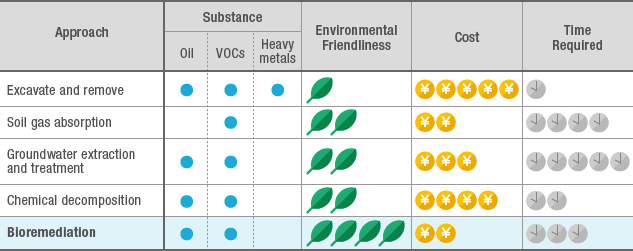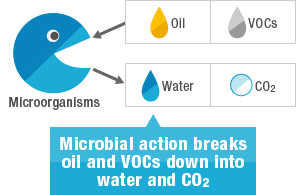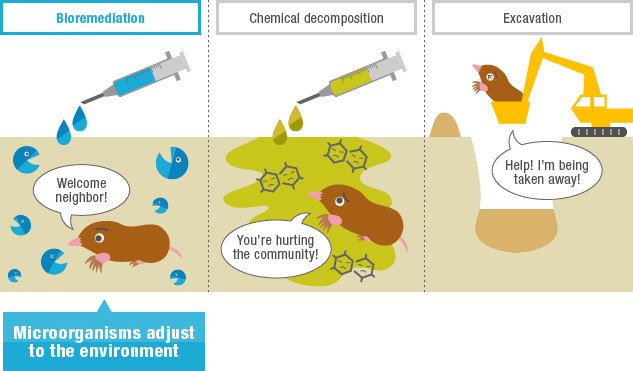HOME > What is bioremediation?
Various approaches - such as excavation, absorption, and chemical decomposition - can be taken to clean up contaminated soil and groundwater.
Bioremediation enlists the functions of microorganisms and plants to remove or neutralize oil, VOCs (volatile organic compounds), and other pollutants in soil and groundwater. Excellent cost performance and low impacts on ecosystems have made it the focus of growing interest in recent years.
Comparison of Bioremediation with Other Soil and Groundwater Remediation Approaches


A vast array of microorganisms exist in the soil, sea, groundwater, and other parts of the natural environment. Among them are organisms that consume oil and VOCs, and break them down into water and CO2.
Bioremediation makes the most of the action of these microorganisms to efficiently remediate contaminated soil and groundwater.
Decomposition of Pollutants by Microorganisms


In the past, soil and groundwater remediation have given rise to concerns about waste, and soil and water damage, resulting from the performance of remediation work.
With bioremediation, soil and water are treated in place and no waste results from the remediation work itself. Furthermore, once pollutants are broken down, the microorganisms that performed the decomposition work naturally die off with little or no impact on the ecosystem.
Impact of Remediation Approaches on Ecosystems


Bioremediation is performed by adding a biopreparation made with useful microorganisms, and microorganism nutrients, directly to the contaminated soil or groundwater. With no major investment in facilities, or transfer of soil or wastewater to an off-site location, cost performance is, therefore, excellent.
Necessary Elements for Bioremediation
